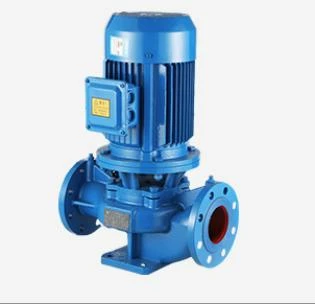English
- Afrikaans
- Albanian
- Amharic
- Arabic
- Armenian
- Azerbaijani
- Basque
- Belarusian
- Bengali
- Bosnian
- Bulgarian
- Catalan
- Cebuano
- Corsican
- Croatian
- Czech
- Danish
- Dutch
- English
- Esperanto
- Estonian
- Finnish
- French
- Frisian
- Galician
- Georgian
- German
- Greek
- Gujarati
- Haitian Creole
- hausa
- hawaiian
- Hebrew
- Hindi
- Miao
- Hungarian
- Icelandic
- igbo
- Indonesian
- irish
- Italian
- Japanese
- Javanese
- Kannada
- kazakh
- Khmer
- Rwandese
- Korean
- Kurdish
- Kyrgyz
- Lao
- Latin
- Latvian
- Lithuanian
- Luxembourgish
- Macedonian
- Malgashi
- Malay
- Malayalam
- Maltese
- Maori
- Marathi
- Mongolian
- Myanmar
- Nepali
- Norwegian
- Norwegian
- Occitan
- Pashto
- Persian
- Polish
- Portuguese
- Punjabi
- Romanian
- Russian
- Samoan
- Scottish Gaelic
- Serbian
- Sesotho
- Shona
- Sindhi
- Sinhala
- Slovak
- Slovenian
- Somali
- Spanish
- Sundanese
- Swahili
- Swedish
- Tagalog
- Tajik
- Tamil
- Tatar
- Telugu
- Thai
- Turkish
- Turkmen
- Ukrainian
- Urdu
- Uighur
- Uzbek
- Vietnamese
- Welsh
- Bantu
- Yiddish
- Yoruba
- Zulu
Telephone: +86 13120555503
Email: frank@cypump.com
Dec . 03, 2024 15:36 Back to list
sewer pump for basement
The Importance of a Sewer Pump for Basements
When it comes to maintaining a safe and functional home, few components are as crucial as a reliable sewage pumping system, especially in basements. Whether you’re finishing your basement to create additional living space, installing a laundry room, or setting up a bathroom, understanding the role of a sewer pump is essential. In this article, we will explore what a sewer pump is, why it is necessary for basements, how it functions, and factors to consider when choosing one.
What is a Sewer Pump?
A sewer pump is a mechanical device designed to move sewage and wastewater from lower to higher elevations. It is particularly vital for homes with basements, as these areas are often below the main sewer line. Without a sewer pump, wastewater would be unable to flow away from the basement, leading to significant health hazards, unpleasant odors, and potential structural damage.
Why Do Basements Need Sewer Pumps?
Basements are frequently prone to flooding due to their location below ground level. Heavy rain or a saturated ground can lead to water pooling in the basement, which can mix with sewage—a scenario that can create serious health risks. A sewer pump helps to ensure that any wastewater generated in the basement is properly disposed of through the main sewer line, preventing the buildup of hazardous waste.
Moreover, with more homeowners looking to utilize their basements for additional living space, the demand for bathrooms and laundry facilities in these areas has increased. Any bathroom or laundry installation in a basement requires a sewer pump to ensure proper drainage, thus making the living space more functional and hygienic.
How Does a Sewer Pump Work?
Sewer pumps come with internal mechanisms consisting of a motor and impeller that works together to move wastewater. When wastewater fills the basin, a float mechanism activates the pump. The impeller begins to spin, sucking the waste into the pump and forcing it upward through the discharge pipe leading to the main sewer line. This automatic operation means that homeowners do not need to manually pump out wastewater, providing peace of mind and convenience.
sewer pump for basement

Choosing the Right Sewer Pump
When selecting a sewer pump for your basement, several factors should be considered
1. Pump Type There are different types of sewer pumps, including simplex and duplex systems. A simplex pump features a single pump and is typically sufficient for residential use. Duplex systems have two pumps for increased reliability and are ideal if the basement frequently experiences heavy influxes of wastewater.
2. Horsepower The horsepower of the pump will determine its pumping capacity. Depending on your needs, you may require a pump with higher horsepower for larger homes or basements with multiple fixtures.
3. Pump Material Sewage is corrosive, so the material of the pump is important. Look for a pump made from durable materials like cast iron or stainless steel.
4. Grind and Impeller Systems Whether you need a grinder pump can also influence your choice. Grinder pumps break down solids and waste, making them easier to pump away. If your basement will process solid waste, consider this option.
5. Installation and Maintenance Proper installation is vital to the effective functioning of a sewer pump. Professional installation is recommended to ensure it is connected correctly to the sewage line. Additionally, routine maintenance will help extend its lifespan and prevent unexpected failures.
Conclusion
In conclusion, a sewer pump is an invaluable asset for any basement, transforming a potentially troublesome area into a functional and healthy living space. By thoroughly considering your specific needs and taking factors such as pump type, horsepower, materials, and maintenance into account, you can choose the right sewer pump to protect your home and enhance your basement's usability. Investing in a quality sewer pump is not just about convenience—it's about safeguarding your home’s integrity and ensuring that your basement remains a safe, stress-free environment.
-
Horizontal Split Case Pump with GPT-4 Turbo | High Efficiency
NewsAug.01,2025
-
ISG Series Pipeline Pump - Chi Yuan Pumps | High Efficiency, Durable Design
NewsAug.01,2025
-
Advanced Flue Gas Desulfurization Pump with GPT-4 Turbo | Durable & Efficient
NewsJul.31,2025
-
ISG Series Vertical Pipeline Pump - Chi Yuan Pumps | Advanced Hydraulic Design&Durable Construction
NewsJul.31,2025
-
ISG Series Vertical Pipeline Pump - Chi Yuan Pumps | Energy Efficient & Low Noise
NewsJul.31,2025
-
pipeline pump - Chi Yuan Pumps Co., LTD.|High Efficiency&Low Noise
NewsJul.31,2025










